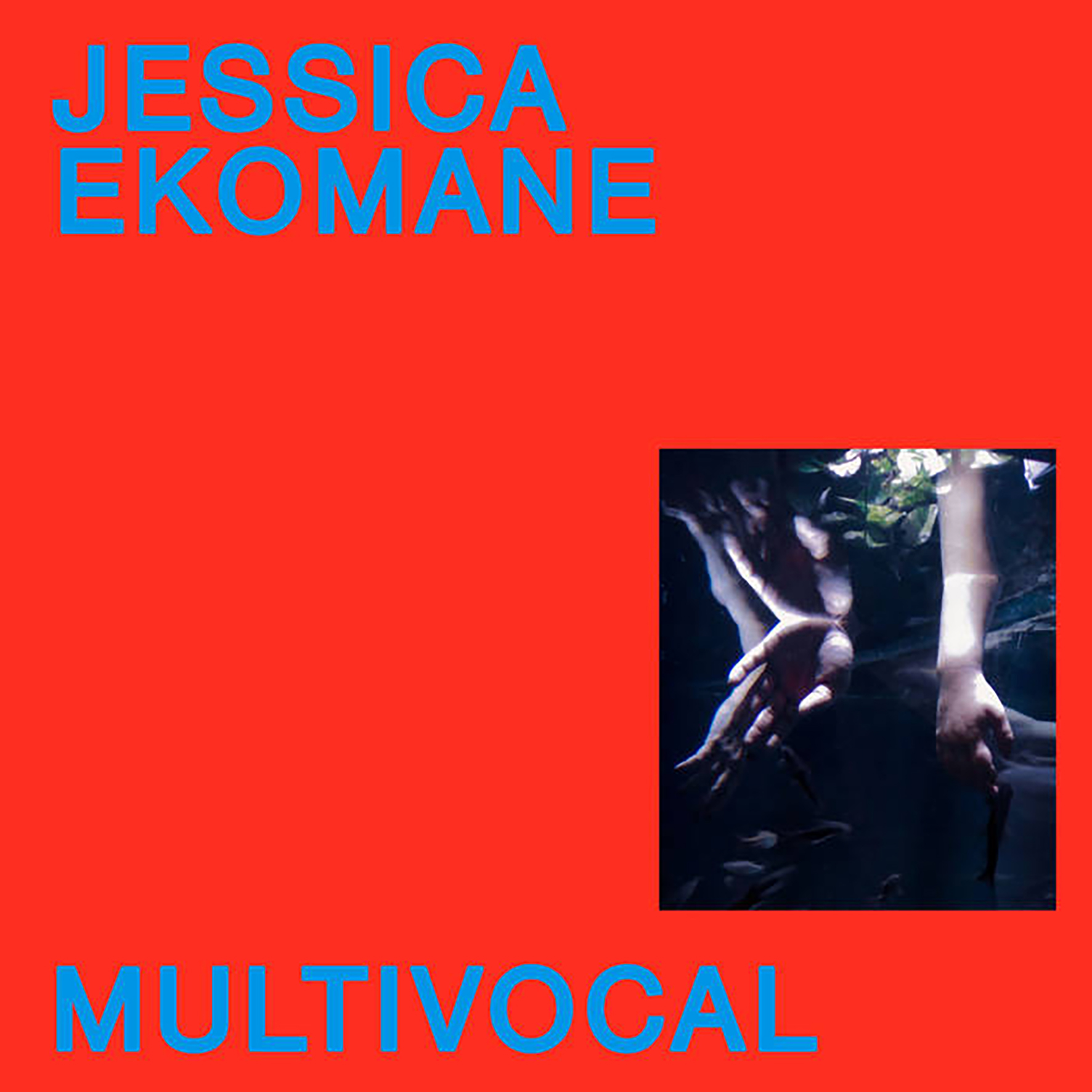Jessica Ekomane, "Multivocal"
 This debut full-length from the Berlin-based Ekomane shares a lot of conceptual common ground with Caterina Barbieri (one of Important's previous break-out sensations), though the two artists have radically different approaches to composition. For example, both artists are quite enamored with using slow shifts in repeating patterns to wonderfully hypnotic and near-psychotropic effect. Ekomane, however, largely eschews hooks or anything resembling conventional songcraft in favor of a visceral, slow-motion onslaught of phase-shifting fragments in immersive quadraphonic sound. Given that focus on intensity and psychoacoustic sorcery, I am not sure that this live document from 2018's Ars Electronica festival quite captures Ekomane at the peak of her powers, but the opening "Solid of Revolution" is certainly a beguiling introduction to Ekomane's distinctive aesthetic.
This debut full-length from the Berlin-based Ekomane shares a lot of conceptual common ground with Caterina Barbieri (one of Important's previous break-out sensations), though the two artists have radically different approaches to composition. For example, both artists are quite enamored with using slow shifts in repeating patterns to wonderfully hypnotic and near-psychotropic effect. Ekomane, however, largely eschews hooks or anything resembling conventional songcraft in favor of a visceral, slow-motion onslaught of phase-shifting fragments in immersive quadraphonic sound. Given that focus on intensity and psychoacoustic sorcery, I am not sure that this live document from 2018's Ars Electronica festival quite captures Ekomane at the peak of her powers, but the opening "Solid of Revolution" is certainly a beguiling introduction to Ekomane's distinctive aesthetic.
Anyone looking for multiple vocalists (or any vocals at all, for that matter) on this album is headed for a major disappointment, as Multivocal sounds like a pure synth album and a hyper-minimal one at that.It was actually created using Max/MSP though, which presumably lends itself well to the extreme control and rhythmic precision needed to compose in this vein.Each side of the record features a single longform work built from a single simple pattern, though the two pieces apparently "mirror each other with the same principle in different musical scales."I suppose that is probably true, as the two pieces ultimately have very different tones, but the initial difference between the two is primarily one of where they start and where they are ultimately headed: "Solid of Revolution" comes right out of the gate as an arpeggiated melodic fragment whereas "Never Odd or Even" slowly unspools from a single repeating chord. The latter is admittedly the more impressive feat of structural sleight of hand, as an initially unpromising motif slowly blossoms into something quite complex.That said, "Solid of Revolution" benefits greatly from foregoing such a long, slow build-up, as I am immediately drawn in by the moody, futuristic-sounding hook and my interest only deepens as it starts to undergo subtly hallucinatory rhythmic permutations.As it unfolds, it becomes increasingly dizzying and disorienting, as the pattern seems to seamlessly blur, smear, change tempo, and cohere into entirely new patterns without ever losing any of its haunted, neon-lit atmosphere or sense of relentless forward motion.
"Never Odd or Even," on the other hand, is a far more staccato, candy-colored, and deconstructed-sounding affair.Initially, however, it is just a single weird chord that sounds a lot like an accordion.Gradually though, the reason for that chord's unusual harmonic character becomes increasingly clear, as Ekomane slowly pulls it apart until the individual notes form a lurching and kaleidoscopic melody of sorts.It would be a stretch to say that I actually like the resultant motif, but it certainly does provide a deliriously manic counterpoint to Multivocal's tense and obsessive first half.In fact, it is almost nightmarishly cheery, resembling a locked groove of an accordionist covering a radiant and burbling New Age piece at the wrong speed.Ekomane definitely gets points for originality, as a strong case could made that she successfully weaponized burbling kosmische psychedelia as a sanity-eroding swarm of fluttering synth-like tones.Eventually, however, it all condenses back into a single chord for an impressive bit of structural symmetry.As far as cool tricks go, "Never Odd of Even" is a legitimately impressive and imaginative feat, as it is akin to a prism diffracting white light into an entire spectrum of colors, then stealthily and imperceptibly reversing the process.Unfortunately, the strength of the motif being pulled apart is not quite sufficient to carry the piece (though my general aversion to major keys probably did not help matters).
My mixed feelings about the album's second piece aside, it is easy to see why Multivocal was one of Important's most eagerly anticipated albums in recent memory: Ekomane has a compelling and unique vision and she executes it with masterful control and focus.Moreover, "Solid of Revolution" is a worthy addition to the canon of great phase-manipulation works previously recorded by titans like Alvin Lucier and Steve Reich, as it marks an inspired evolution rather than a mere homage.When Ekomane is at her best, her shifting phase experiments feel like fresh and vital contemporary synth music rather than mere cerebral experimentation for its own sake.Also, these pieces have a lot more moving parts than classic phase-shift pieces built from just vocal phrases or clapping and Ekomane's minimalism prevents her from masking any seams with drones or accompanying chords.Consequently, I have no misgivings at all about declaring Multivocal to be a genuinely impressive feat of sound architecture.I am very curious to hear what Ekomane will achieve when she eventually records a studio album, as even Steve Reich only recorded a handful of phase-shift pieces in his heyday.That leaves quite a lot of unexplored possibility in this hyper-constrained niche and "Solid of Revolution" suggests that Ekomane is exactly the right person to explore it.
Samples can be found here.



